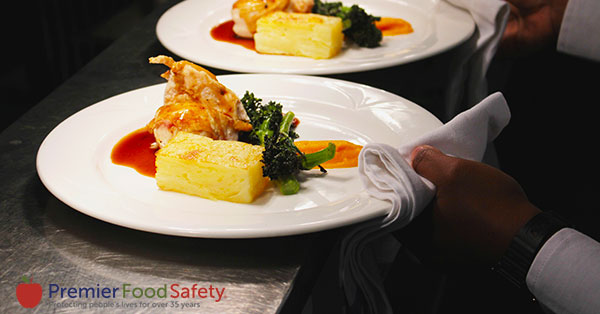Published November 9, 2015
 Although Kobe beef is a trendy item on American restaurant menus these days, the term “Kobe” is entirely unregulated in the U.S. If you’ve ordered Kobe beef in America, you almost certainly were not served real Japanese Kobe.
Although Kobe beef is a trendy item on American restaurant menus these days, the term “Kobe” is entirely unregulated in the U.S. If you’ve ordered Kobe beef in America, you almost certainly were not served real Japanese Kobe.
Now Japanese farmer are trying to make the Kobe designation have the same legal force as labels like Champagne by giving it a “geographic indication” label. T
his label would prevent businesses worldwide from calling beef Kobe unless it was produced in Japan’s Hyogo prefecture.
Most beef labeled as Kobe in America is actually American Wagyu beef. Only nine businesses in the U.S. serve Japanese Kobe. The real product is made in Hyogo prefecture from black Tajima Wagyu cattle that are fed only local grass and water. These cattle have special genes that make their flesh highly marbled with luxurious, buttery fat. In Japan, Kobe can only be made at 260 certified farms, and the meat from those farms is all evaluated to make sure it has the appropriate amount of marbling.
If the Japanese farmers succeed, they will prevent American businesses from confusing customers by serving uncertified and potentially inferior beef. This will be a boon both for the farmers and for American consumers, who will now have a better idea of where their meat comes from.
Read the full article here: The Fight for Real Kobe Beef is Coming to a Restaurant Near You
Published November 9, 2015
Amin Dhanani, the 38-year-old franchising wunderkind who operates 125 Popeyes in 4 states, owes his success to a role model very close to home: his father. Dhanani’s dad immigrated from Pakistan 37 years ago with $50, 11 kids, and no ability to speak English, but he built up a highly successful portfolio of Burger King and convenience store franchise. Amin, who just won Popeyes Franchisee of the Year award, still looks to his dad for business advice and approval.
Read the full article here: Driving Ambition: 38-Year-Old Operates 125 Popeyes in 4 States
Published November 9, 2015
A study commissioned by Hospitality GEM suggests that hotel restaurants are missing out on valuable local business because they are perceived as expensive. 64 percent of the 820 diners surveyed ate out more than 5 times a month, but only 15 percent did so at a hotel that they weren’t staying at. Half of the people who avoided hotel restaurants did so because of high prices. Hotel restaurants with strong culinary reputations were immune from this effect, with a third of respondents saying that they were more likely to dine at a hotel with a strong reputation.
Read the full article here: Diners Put Off by Expensive Hotel Restaurants



Japanese Farmers Attempt to Regulate Use of Word “Kobe”
Now Japanese farmer are trying to make the Kobe designation have the same legal force as labels like Champagne by giving it a “geographic indication” label. T
his label would prevent businesses worldwide from calling beef Kobe unless it was produced in Japan’s Hyogo prefecture.
Most beef labeled as Kobe in America is actually American Wagyu beef. Only nine businesses in the U.S. serve Japanese Kobe. The real product is made in Hyogo prefecture from black Tajima Wagyu cattle that are fed only local grass and water. These cattle have special genes that make their flesh highly marbled with luxurious, buttery fat. In Japan, Kobe can only be made at 260 certified farms, and the meat from those farms is all evaluated to make sure it has the appropriate amount of marbling.
If the Japanese farmers succeed, they will prevent American businesses from confusing customers by serving uncertified and potentially inferior beef. This will be a boon both for the farmers and for American consumers, who will now have a better idea of where their meat comes from.
Read the full article here: The Fight for Real Kobe Beef is Coming to a Restaurant Near You
Commentary
Comments closed